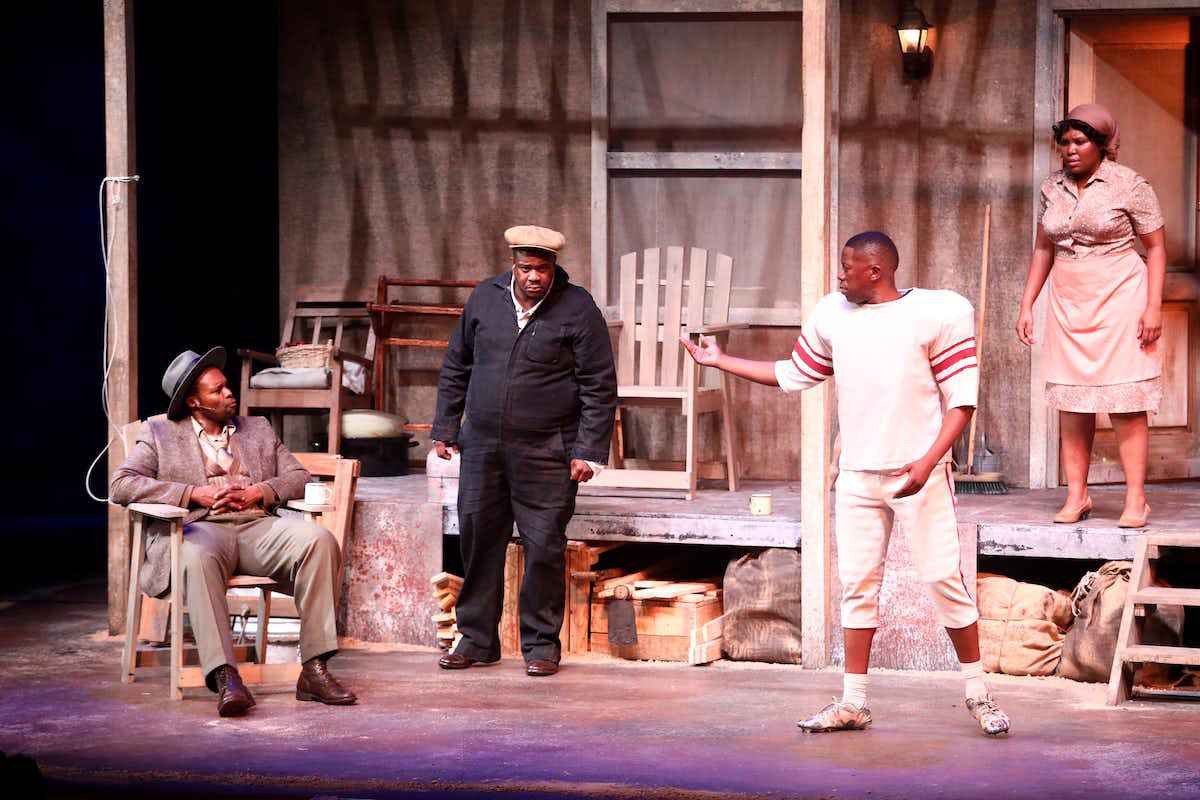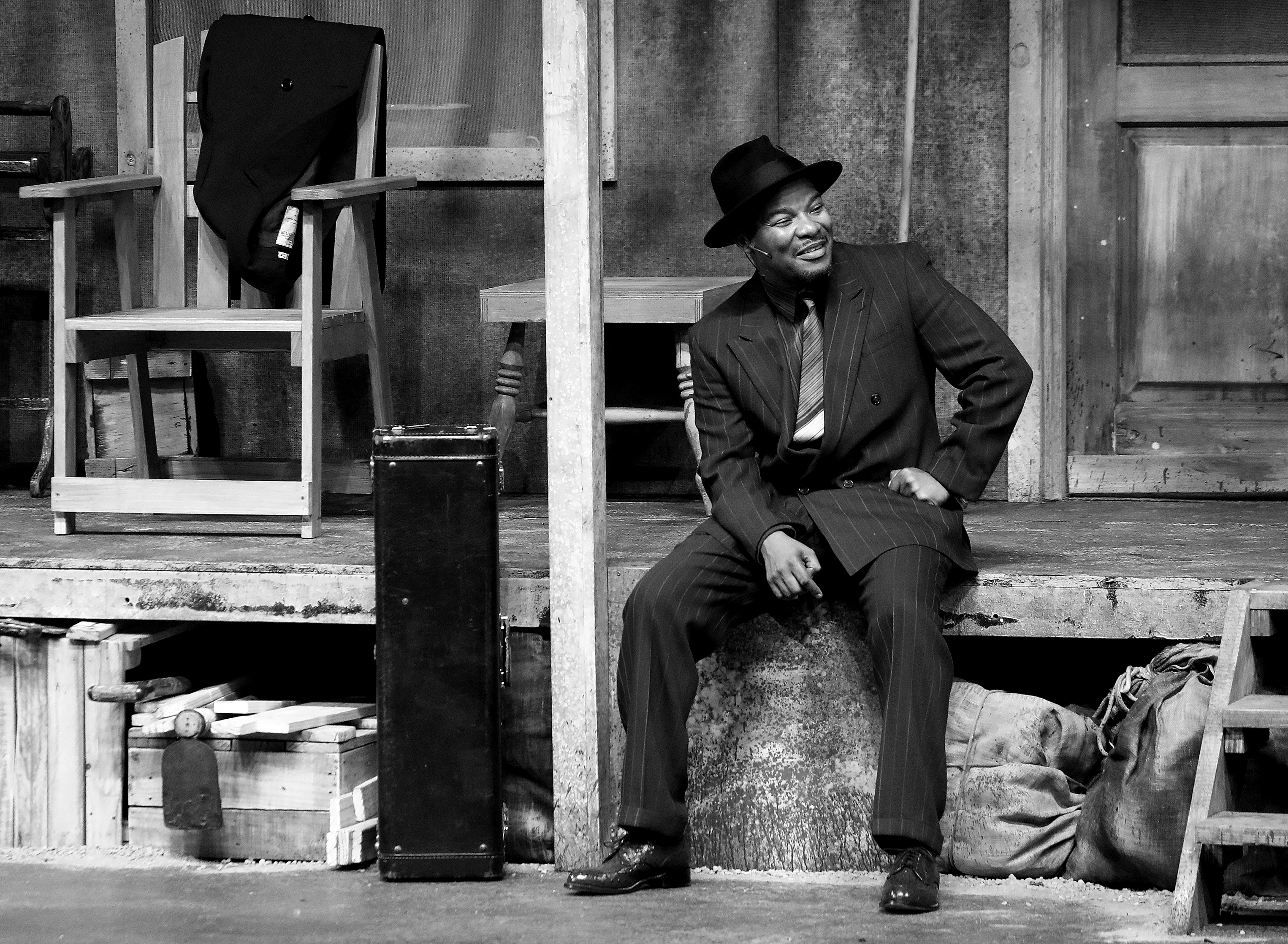Fences, a creative examination of a black family’s experience, is one of the most frequently performed plays in the US. It was first developed in 1983 by celebrated African-American dramatist August Wilson, becoming a successful Broadway production in 1987.
Wilson was born in 1945 in a poor district of Pittsburgh; he died in 2005. A pathbreaking force in shaping African-American drama, he was awarded the Pulitzer Prize for both Fences (1987) and The Piano Lesson (1990). Fences was made into an acclaimed Hollywood film in 2016.
Wilson’s work continues to compel audiences not simply through its imaginative power, but because its rounded insider’s perspective makes ordinary African-Americans sympathetically visible as they love and struggle. These are lives otherwise overlooked by an indifferent white community.
Interest in the play now extends far beyond the US. The current run of Fences in Johannesburg will vividly bring to mind the destructive after-effects of apartheid on black life. Beyond this, Wilson’s drama aims to touch deep human responses in all of us.
The backdrop
In a 1996 speech, Wilson argues that he stands on the ground “pioneered by the Greek dramatists” and Shakespeare – but also on the ground broken by his grandfather and other committed activists for black identity, independence and culture.
Despite society’s denial of black rights, he passionately wants to affirm “the value of [his] being” as a person. At the same time, he regards race as “the largest, most important and most identifiable part of our personality… the one to which others in the world of men most respond”.
These comments have particular significance for Fences, a pivotal play in Wilson’s 10-drama cycle covering African-American experience across the 20th century. Set between 1957 and 1965, Fences belongs to the era of the civil rights movement, a widespread campaign for social justice and equal rights for black Americans.
What the play is about
Fences portrays the characteristic rhythms and aspirations of a family in Wilson’s childhood Hill District of Pittsburgh: the stark tensions between father and son, the constant haunting of a bitter past – and the fragile hope for self-actualisation infused by forgiveness.
The title of the play maps the contours of a conflicted world whose inhabitants strive both for security and release. Literally, Troy Maxson is building a fence around his property; fences protect and enclose, but also shut out. Figuratively, “fences” suggests the barriers inhibiting personal relationships and the obstructions deliberately imposed by racial segregation. Troy dares death to try to abduct those he loves by crossing his fence. His wife Rose calls on Jesus to “be a fence all around [her] every day”. The interweaving of these multiple domestic, political, emotional and spiritual meanings constitutes the tight fabric of Wilson’s play.
Visit Daily Maverick's home page for more news, analysis and investigations
At the centre stands Troy, a “large man with thick, heavy hands” who must come to terms with the largeness of both his physique and his wayward sensibility, as well as the sheer fact of his blackness. Scarred by his brutal upbringing in a Deep South characterised by racial segregation, Troy resorts to crime when he comes north. After committing murder, he is sentenced to jail for 15 years. In prison he becomes a talented baseball player, but later finds himself excluded from the top professional league by his age and possibly his race.
Troy’s rebelliousness makes him the first black driver of a garbage truck in his area. Angry, boastful and sometimes a bully, he battles to balance responsibility against freedom, love against domination, the affirmation of his being against the pressing needs of others. As Rose tells their son Cory: “Your daddy wanted you to be everything he wasn’t… and at the same time he tried to make you into everything he was. I don’t know if he was right or wrong… but I do know he meant to do more good than he meant to do harm.”
 'Fences' on stage at the Mandela at Joburg Theatre. (Photo: Fences / Joburg Theatre / JT Marketing)
'Fences' on stage at the Mandela at Joburg Theatre. (Photo: Fences / Joburg Theatre / JT Marketing)
Troy’s bruised masculinity is set against Rose’s determination to seek fulfilment as a dedicated wife, but his rough assertiveness threatens to consume her. Yet Rose can command fundamental resources of strength and integrity. When Troy seeks her support in rearing his illegitimate daughter, she replies: “A motherless child got a hard time… From right now… this child got a mother. But you a womanless man.” So Rose withdraws into herself and Troy begins his slide into irritable loneliness.
Fences is traced by the song Old Blue, ostensibly composed by Troy’s father but actually recorded by Jim Jackson as Old Dog Blue in 1928. This “mighty true” hunting dog dies after loyally serving his master; he is solemnly buried and duly reaches the “promised land”.
For Wilson, the music of the blues traverses the mood and texture of African-American existence from the time of the slave ships through to modern life. As the African-American writer Ralph Ellison poetically expresses it: “The blues is an impulse to keep the details and episodes of a brutal experience alive in one’s aching consciousness, to finger its jagged grain, and to transcend it…”
Wilson’s harsh realism makes this suffering resound throughout Fences.
Its meaning in South Africa
Fences probably assumes a range of charged resonances for South African audiences. Aptly, the first professionally staged play that Wilson watched was South African playwright Athol Fugard’s Sizwe Banzi is Dead, which exposes the humiliating injustice of apartheid South Africa’s pass laws, a system that rigidly controlled the movement of black people and their right to work.
The parallels between apartheid as an oppressive system of white minority rule and the US before civil rights are striking. Troy Maxson’s ample personality strains against such a structure of shrunken opportunities for his roiling energy. So his frustration turns back on itself, poisoning his manhood and steadily damaging his family relationships.
In post-apartheid South Africa, the perspective should, of course, be different. The country’s Constitution explicitly outlaws racial discrimination, while the US – in theory, at least – has progressed beyond overtly discriminatory practices. Nevertheless, deeply seared memories and the consequent wounding remain.
The same principle would apply to the persisting traumatic inheritances of apartheid. Many communities in South Africa continue to feel the remorseless grip of the past in their endurance of disadvantage and alienation. They are still on the wrong side of the fence, while canny (or corrupt) others have expediently fixed the boundaries of privilege.
Although Wilson insists on representing the concrete elements of African-American history, he equally embraces the universality of theatre as a medium for distilling human concerns: love, honour, duty and betrayal belong and pertain to every culture and race.
In its closing scene, Fences reaches towards healing through forgiveness and a glimmering hope for a freer future. These impulses will speak to many post-apartheid South Africans too. DM168
This article was first published by The Conversation.
Merle A Williams is a professor emerita of English and research associate of the African Centre for the Study of the United States, University of the Witwatersrand.
This story first appeared in our weekly Daily Maverick 168 newspaper, which is available countrywide for R25.





 'Fences' on stage at the Mandela at Joburg Theatre. (Photo: Fences / Joburg Theatre / JT Marketing)
'Fences' on stage at the Mandela at Joburg Theatre. (Photo: Fences / Joburg Theatre / JT Marketing)